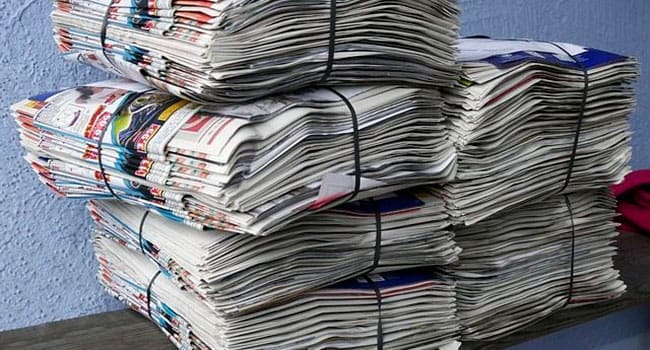 The City of Winnipeg’s intended austerity budget predictably nickels and dimes ratepayers, with rate increases and service cuts in response to lower than expected provincial transfers. But city council has thrown away tens of millions of dollars in available savings on garbage collections and recycling.
The City of Winnipeg’s intended austerity budget predictably nickels and dimes ratepayers, with rate increases and service cuts in response to lower than expected provincial transfers. But city council has thrown away tens of millions of dollars in available savings on garbage collections and recycling.
In September 2016, independent pollsters found that 93 per cent of Winnipeggers were satisfied with garbage collection and recycling.
Both services were provided by Emterra Environmental, which had held the contract since 1995. Emterra had won the previous tender for curbside collection with the lowest bid. And in 2016, happy to continue that relationship, the company offered the city another two years of curbside collection at the existing annual cost of $16 million.
The city had other plans. It put out a request for proposal (RFP) instead of a tender; the lowest price would no longer be the determining factor.
So, with its arbitrary criteria accounted for, the annual curbside collection contract was split between two companies: GFL Environmental Inc. at $9.7 million and Miller Waste Systems Inc. at $14.9 million. At a combined annual cost of $24.6 million, than means taxpayers will pay $17.2 million more over the next two years than they would have under Emterra’s two-year offer.
And it’s still not known if the provincial non-profit recycling company Multi-Material Stewardship Manitoba (MMSM) will pay the $5.2-million annual difference between GFL’s fees and those charged by Miller Waste. MMSM is supposed to pay 85 per cent of residential recycling costs. However, because the city unilaterally increased cost by going with two contractors, they are balking at paying more for the exact same amount of work and no tangible benefit.
Accordingly, Winnipeg taxpayers could be on the hook for another $36.4 million over the length of MMSM’s seven-year contract. If so, taxpayers would pay a percentage point more on their property taxes for the same curbside service they had in 2016.
And taxpayers may face another unnecessarily high-priced sequel with recycling. The city has also abandoned seeking tenders in this area, also issuing an RFP for recycling services. That ignores practical realities.
In 2011, Winnipeg’s Comprehensive Integrated Waste Management Plan forecast that annual recycling volumes would rise from roughly 45,000 tonnes up to 85,000 by 2016 and 123,100 by 2031. Those projections proved unrealistic – recycling volumes plateaued at 55,000 tonnes in 2013. You can thank thinner and fewer newspapers and changes in the packaging of food products.
Undaunted by reality and increasing costs, city bureaucrats now insist on a new recycling facility with a 65,000-tonne annual capacity and new equipment. This overkill, duplicating Emterra’s perfectly fine recycling facility, could cost $40 million. And Emterra recently spent $23 million to expand and modernize its recycling facility, including $8 million in 2012 to increase its capacity from 45,000 tonnes to 80,000 tonnes.
As it stands, Emterra will have to shut its recycling facility, since 90 per cent of its business (the Winnipeg market) will go to the new mega facility.
This mess comes at a time when most municipalities are getting out of the recycling business. Vancouver and many other B.C. municipalities have handed over recycling collection to Recycle BC. In Ontario, the 2016 Waste-Free Ontario Act requires producers, packaging manufacturers and newspapers to fund and operate residential recycling collection and processing. This encourages packaging and products that are more easily recyclable. Municipal involvement is on the way out.
Winnipeg’s recycling request for proposal should be scrapped, since the market for recycled goods is trending down.
China, the world’s largest importer of recycled plastic and paper, has 51 per cent of the world recyclable market. That includes 70 per cent of the American market and 55 per cent of recovered paper and fibre. But China has announced it no longer intends to allow imports of 24 kinds of scrap materials, including plastic and paper recyclables.
So it’s a risky time to make an expensive municipal recycling investment. Such major investments should remain with the private sector, which can weather market downturns better because of long-term relationships with world commodity markets.
Bureaucrats should recognize good value when they see it and think twice before dropping a reliable, lower-cost supplier for a risky investment in an unneeded new recycling plant.
Lee Harding is a research associate at the Frontier Centre for Public Policy.
Lee is a Troy Media Thought Leader. Why aren’t you?
The views, opinions and positions expressed by columnists and contributors are the author’s alone. They do not inherently or expressly reflect the views, opinions and/or positions of our publication.

